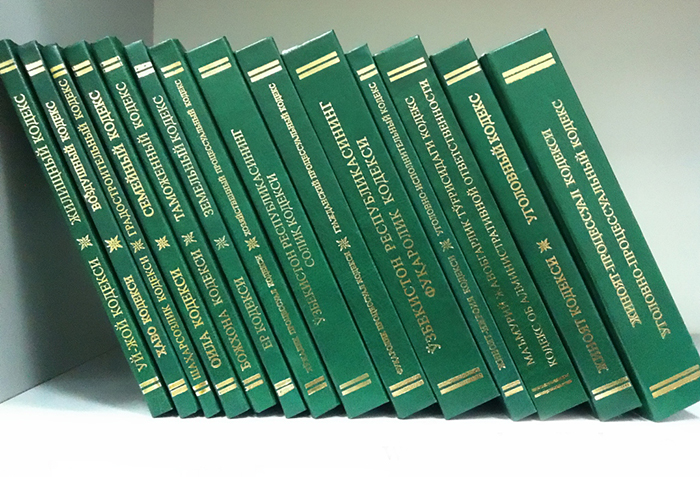Uzbekistan to adopt a new edition of the Civil Code

Shavkat Mirziyoyev signed a decree “On measures to improve the civil legislation of the Republic of Uzbekistan”.
According to the document, the President of Uzbekistan identified the main priorities for further improvement of the civil legislation of the Republic of Uzbekistan by means of:
- systematization and unification of the norms of civil legislation, ensuring their harmonization with the best foreign practices, as well as implementation of advanced international standards in this field;
- establishment of effective civil law mechanisms to guarantee the security of private property, protect the rights and legitimate interests of individuals and legal entities, especially entrepreneurs;
- clear demarcation of the norms of public and civil law, exclusion of outdated provisions that have lost their significance, based on the command-and-control principles of economic management;
- ensuring the legal regulation of modern civil-law institutions and forms of economic relations, such as public-private partnerships, cluster production, electronic commerce, cryptocurrency turnover, land privatization, shared construction and others.
The President also approved the Concept for the improvement of civil legislation.
This Concept states that the current edition of the Civil Code does not fully meet requirements of the rapidly developing economic relations in the country and international standards in the field of civil law. In particular:
firstly, the Civil Code preserved outdated legal institutions, as well as organizational-legal forms of legal entities that do not exist in the legal systems of developed countries with market economies;
secondly, there are no such classical civil-law institutions as “commercial risk”, “equality of economic entities”, “fair compensation”, “refusal to fulfill contractual obligations”;
thirdly, there is no regulation of certain forms of civil-law contracts and relations demanded in modern market conditions, including a public-private partnership agreement, dealer agreement, shared construction, cluster production, electronic commerce, cryptocurrency turnover, land privatization and others;
fourth, the presence of a large number of reference norms (about 80) in the Civil Code does not allow the code to become an act of direct action and reduces its status in the settlement of civil legal relations;
fifth, there is an unreasonably large number of organizational-legal forms of legal entities that are similar to each other and consist of a mixture of rules borrowed from other organizational legal forms (for example, a private enterprise and a unitary enterprise that cannot attract investments, since the law does not provide joining other participants);
sixth, the Civil Code contains the norms of public rights, which do not belong to the institutions of civil law, there is an unreasonable number of restrictions concerning private property and contractual relations;
seventh, there are practically no provisions in the Civil Code governing the use of information and communication technologies in civil law relations.
Based on the above problems, by April 1, 2020, introduction of a new edition of the draft Civil Code of the Republic of Uzbekistan in the prescribed manner and other regulatory and legal acts aimed at improving civil legislation is expected.
Recommended
List of streets and intersections being repaired in Tashkent published
SOCIETY | 19:12 / 16.05.2024
Uzbekistan's flag flies high on Oceania's tallest volcano
SOCIETY | 17:54 / 15.05.2024
New tariffs to be introduced in Tashkent public transport
SOCIETY | 14:55 / 05.05.2023
Onix and Tracker cars withdrawn from sale
BUSINESS | 10:20 / 05.05.2023
Latest news
-
Uzbekistan tops medal table at Asian Cadet Judo Cup in Kazakhstan
SPORT | 18:42 / 05.07.2025
-
Uncertainty grows as new homes remain without gas supply
SOCIETY | 17:46 / 05.07.2025
-
Uzbekistan plans to launch national ferry service in Caspian Sea
SOCIETY | 16:03 / 05.07.2025
-
Dozens of violations, zero accountability: Fergana police cancel fines for chief’s wife’s car
SOCIETY | 16:02 / 05.07.2025
Related News

17:44 / 04.09.2024
Entrepreneurs’ surcharge for excess electricity and gas consumption to be reduced tenfold

15:16 / 21.06.2024
Consumers who install energy-saving devices to receive 15% discount on current tariff for 3 years

11:16 / 16.11.2023
Business Development Bank to allocate more than $1 billion to support small companies

11:21 / 17.10.2023



